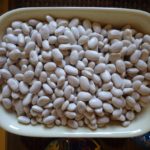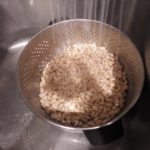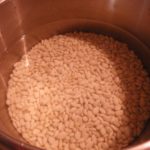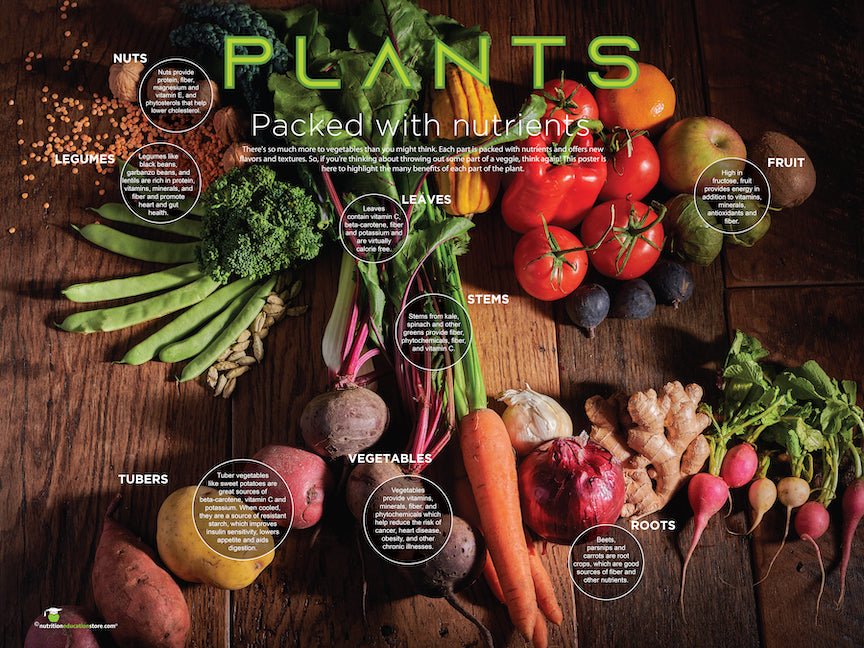 Beans are frequently touted as a great source of low-fat protein along with fiber. But, many people have an embarrassing problem with beans. This is one of those topics people don’t talk about…..gas.
Beans are frequently touted as a great source of low-fat protein along with fiber. But, many people have an embarrassing problem with beans. This is one of those topics people don’t talk about…..gas.
One specific sugar in beans —oligosaccharide—tends to be the culprit. It’s just not broken down and absorbed like other sugars. When beans get into the digestive system this sugar starts to ferment—making gas.
There are a few things you can do to help reduce the gas:
- Easy does it. If adding beans or other high fiber foods to your diet start slowly. Let your body adjust slowly. Be sure to include beans on a regular basis, a couple of times a week at first and then more often. The more you eat, the less gas will be a problem. The 2015-2020 Dietary Guidelines for Americans recommend we eat 1 ¼ to 1 ½ cups of legumes (beans and peas) each week.
- Soak well. If using dried beans soak them for at least 48 hours. Change the water at least once during the soaking. Rinse well before cooking and use fresh water for cooking. Cook until very tender.
- Cook canned beans a little more, too. Rinse canned beans. This also helps to reduce the sodium.
- Use an over-the-counter enzyme supplement that can help break down the gas-producing sugars.
- Experiment with different types of beans, some people tend to react to different varieties.
- While there is no research to prove this works, some people swear that adding herbs and spices while cooking can help. Try a tablespoon of fennel, cumin, ginger, a Mexican spice called epazote or an Indian spice ajwain to a pot of beans. Even if it doesn’t help with the gas problem, the bonus is….. you’ve tried a new flavor!
- Start the digestion in your mouth by chewing a lot. Slow down your eating and chew. This can help breakdown the carbohydrates.
- Drink plenty of water. This helps your digestive system handle the increased fiber. The Dietary Guidelines for Americans suggest 25-38 grams of fiber per day for most adults. And research indicates that a high-fiber diet helps you have a healthier digestive tract, physical health, and even mental health.
One more bean tip: many grandmothers used to put baking soda in their bean water while cooking—some saying this helps to reduce gas. While baking soda does help make the beans tender, especially if you have hard water, this comes with a cost. Adding baking soda causes the beans to lose some vitamins.
Cheryle Jones Syracuse, MS
Professor Emeritus, The Ohio State University

Plants: Many Beneficial Parts Vinyl Health Fair Banner 24" x 67" On Stand
$125.00 $135.00
Add to Cart

Plant Slant Vinyl Health Fair Banner 24" x 67" On Stand
$125.00 $135.00
Add to Cart
New Products Available Now
Check out the Nutrition Nuggets page which features over 20% off three special products each week.
Connect with us on Google Plus



















